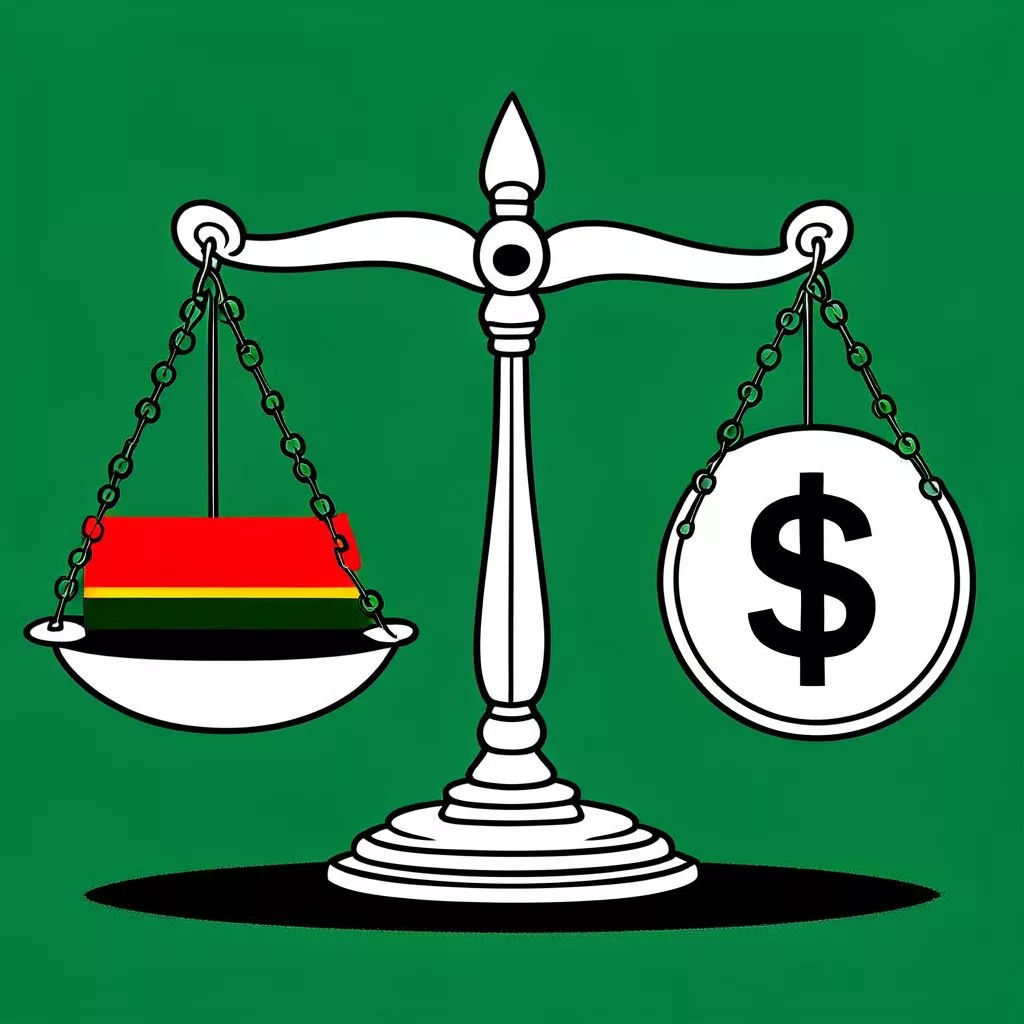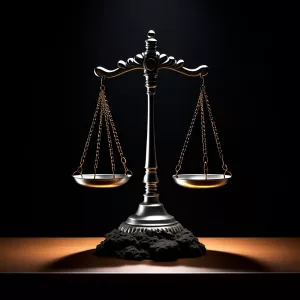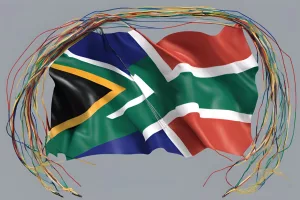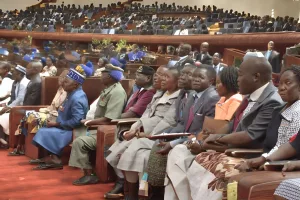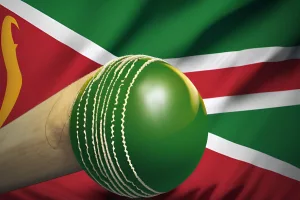Rob Hersov is a sharp critic of South Africa’s current political scene, especially the ruling ANC party, which is losing support from black voters. He believes that while the ANC had some successes in the past, it is now plagued by corruption and inefficiency. Hersov also questions the strength of opposition parties, suggesting they are too weak to challenge the ANC effectively. His comments spark important conversations about fairness, privilege, and the need for real change in South Africa’s society. Overall, he urges South Africans to engage in open discussions to build a better future together.
Cyril Ramaphosa, the President of South Africa, has boldly declared that his party, the African National Congress (ANC), will not let businesses dictate government decisions. He insists that all choices will be made for the people, not for wealthy business leaders. This strong statement comes after business figures expressed worries about political tensions, especially concerning a coalition government. Ramaphosa’s commitment to the people’s needs shows the ANC’s dedication to democratic values, promising to stand firm amid challenges and ensure the government serves its citizens first. As the ANC navigates these tough times, eyes are on them to see how they uphold their promises.
South Africa is in a political storm over corruption claims against Khumbudzo Ntshavheni, the Minister in the Presidency. The Democratic Alliance (DA) is pushing for her removal, demanding clear answers and honest leadership from President Cyril Ramaphosa. As an investigation into a huge R80 million scandal unfolds, concerns grow about trust in the government and the safety of sensitive information. With upcoming elections, the pressure is on for leaders to choose between political loyalty and the need for transparency. This situation highlights a longstanding struggle against corruption that continues to challenge the nation’s values.
Kabelo Gwamanda’s political journey is a rollercoaster filled with excitement and trouble. Once a rising star in Johannesburg’s politics, he faced serious accusations of financial misconduct tied to a fake funeral policy scheme that tricked local residents. As investigations heated up, Gwamanda was kicked off the mayoral committee and arrested, but later the charges were pulled back by the National Prosecuting Authority. Despite these challenges, he remains determined to fight back, showing the tough spirit of politicians who must navigate a world full of ups and downs.
Roman Cabanac’s journey in politics shows us how personal actions can greatly affect public opinion. Starting with a rocky beginning as chief of staff to the Agriculture Minister, he faced backlash for his controversial social media posts and past remarks. Cabanac’s story is a vivid reminder of the importance of being open and responsible in public service, as well as the need for careful communication. Despite the challenges, his determination to learn from mistakes and push for transparency highlights the complex dance between personal choices and the expectations of governance.
Kenny Kunene is a South African entrepreneur and politician known for his extravagant lifestyle and spending habits. He was recently in the spotlight for spending over R125,000 in a single evening and his highend fashion choices during the Durban July weekend. Despite criticism, Kunene continues to be a unique figure in South African politics and commerce, redefining luxury on his own terms.
A Glimpse of Parliamentary Games: The Election Challenge and Ensuing Boycott by the MK Party
The MK Party challenged the legitimacy of the election results and decided to boycott the first sitting of the National Assembly, causing a stir in Parliament. However, Parliament maintains that it must carry out the inaugural sessions free from any legal impediments. Parliament cancelled all plans for the party’s members and emphasized its commitment to sound financial management. Ms. Omphile Mankoba Confidence Maotwe’s input will be pivotal in guiding the outcomes of the ongoing discussions. The incident highlights the intricacies of democracy and emphasizes the importance of democratic dialogue and the strength of the constitutional frameworks.
South African rapper Kiernan ‘AKA’ Forbes was murdered, and seven individuals were apprehended in connection with the crime. A significant deposit was made into one of the suspect’s accounts, alleged to be payment for a hired assassination, and the lead investigator named Mfundo Gcaba, who has familial ties to exPresident Jacob Zuma and substantial ownership of taxis and buses in KwaZuluNatal, as being involved. The Gcaba family denies any wrongdoing and emphasises Mfundo’s innocence and transparency in business operations, while the investigation sheds light on the complex interconnections between power, crime, business, and the arts in South African society.
A controversy has erupted over a R27 million sponsorship agreement between Premier Soccer League team Royal AM and Msunduzi Local Municipality, with the Democratic Alliance questioning the legitimacy of the contract. This has sparked political and socioeconomic debates, with the city struggling with problems such as sewage leaks, water pipeline ruptures, and a growing debt. The situation highlights the complex intersection of sports, politics, and society, and the interconnectivity between football, commerce, and politics.
On February 21, 2024, Cape Town City Hall hosted a momentous event, the annual Budget Speech presented by the Minister of Finance. The speech outlined the fiscal policy and financial priorities for the following fiscal year and was attended by members of the National Assembly and open to media and the public. The event highlighted the accountability and transparency of a functioning democracy, with media representatives capturing the proceedings and the public actively participating in the democratic process. It was a demonstration of democracy in action and showcased the mutual relationship between the government and its citizens.
The future of social grants in South Africa is a crucial issue as over 28 million citizens benefit from them, and the ruling ANC government spends an estimated R253 billion annually on the grants. Opposition parties have made pledges to retain and increase the grants, but their execution depends on multiple factors. The stakes are high, considering the significant impact on the livelihoods of millions of South Africans, and the issue has become a compelling story in South African politics.
David Teeger, a former U19 cricket captain for Cricket South Africa, has caused controversy after being stripped of his captaincy following comments interpreted as “proIsrael” during the leadup to the U19 Cricket World Cup in 2023. The South African Jewish Board of Deputies has called for Teeger’s reinstatement as captain and threatened legal action against CSA and the International Cricket Council if their demand remains unmet. The controversy highlights the intricate dynamics between sports and politics and the significant role of sports in shaping our contemporary dialogue.
The recent discharge of David Teeger as captain of South Africa’s U19 cricket team has caused a global controversy, drawing criticism from some over the International Cricket Council’s refusal to intervene. Teeger’s dismissal is believed to have been politically motivated, highlighting the need for sports governing bodies to take a more proactive stance in preserving the principles of sportsmanship, fairness, and meritocracy. The situation has brought to light the larger issue of how to safeguard sports from sociopolitical interferences.
David Teeger, the captain of the South African U19 cricket team, was removed from his position due to unspecified “safety” concerns. This move came after he dedicated his prize to the “young soldiers in Israel” during a speech at an awards event, sparking controversy. Despite being cleared of any misconduct, CSA removed him from his captaincy as they feared protests and violent clashes that could endanger everyone involved in the U19 Cricket World Cup. The decision has drawn global reactions and rumors of political influence, with CSA standing firm on their prioritization of safety.
As the dominant political force in South Africa, the ANC is facing growing disillusionment amongst its supporters and concerns over financial mismanagement. Despite this, the ANC maintains strong international partnerships and supporters continue to highlight its transformative history and struggle for liberation. With the upcoming election, President Cyril Ramaphosa is seeking to secure a decisive win and continue the ANC’s journey.
Media professionals can apply for accreditation online until 19th January 2024 to document the State of the Nation Address from the Parliament’s heart. The Parliament requires specific details, and no extensions will be given beyond the 19th January deadline. The media plays a crucial role in bridging the gap between the Parliament and the people, connecting the everyday South African to the proceedings of the SONA.

